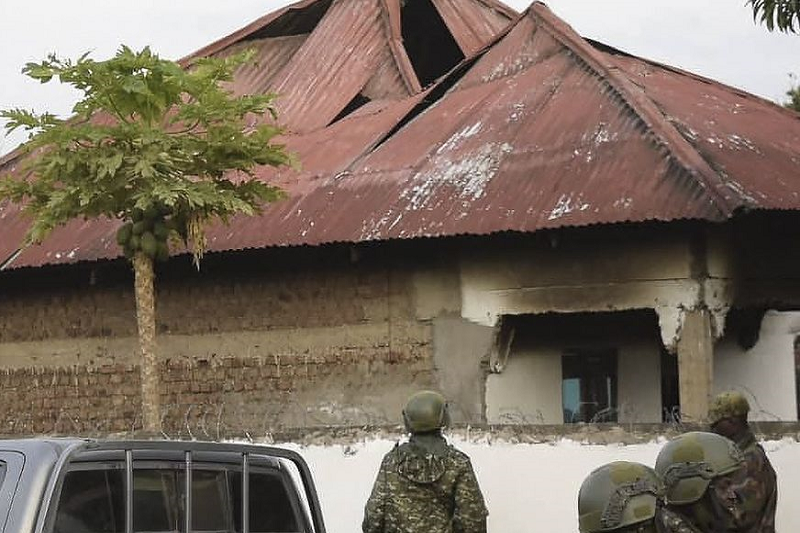On most evenings, Godwin Mumbere and his fellow students at Lhubirira Secondary School in Mpondwe, which is located on Uganda’s western border with the Democratic Republic of the Congo, quietly study and sing together before turning off the lights at 10:00 p.m. and climbing into their bunk beds. An unknown number of attackers, who are believed to be rebels from the Allied Democratic Forces (ADF), disrupted this routine on June 16.
These assailants crossed the border from the Democratic Republic of the Congo and attacked the school. Within hours, they had already murdered over two dozen students in the bloodiest massacre Uganda has seen in decades.
Mumbere, now 18, remembers that the attackers showed up at half past ten in the evening. They started by shooting the school watchman, and then they demanded that the guys open the door to their dorm room. “All of my friends in the dormitory refused,” Mumbere said when speaking to Al Jazeera about the situation. Mumbere followed the head boy’s advice to hide behind the beds as the assailants fired bullets through the locked door and the windows.
After entering the females’ sleeping quarters, the raiders slaughtered the pupils that were staying there. Numerous medical professionals have informed Al Jazeera that the majority of the students died as a result of hammer and machete attacks. The insurgents were still firing their weapons as they made their way inside the room where the youngsters were hiding. One of the incoming bullets struck Mumbere in the hand. A piece of cloth was used to wrap it up.
In the end, the militia started a fire in the dormitory for the boys. As a result, Mumbere decided to take his chances and run out into the night. Brenda Masika, 27, the wife of the school’s headmaster, was inside her home on the other side of the school grounds when she heard youngsters screaming for aid and shooting. Her husband had to travel for work, so she was left to care for their three children by herself.
She reported that a man armed with a gun and wearing a green uniform had entered the residence. After making the threat to also kill her, he stole her phone and the food that she had left on the fire before doing so. The only reason he let the family leave the house before lighting it on fire was because he saw that she was holding a baby at the time.
Inside the compound, Masika discovered the dead body of the watchman as well as the destroyed boys’ dormitory. She was unable to save anything from her house, so she just stood there and sobbed as the buildings burned. The rebels are responsible for the kidnapping of six students and the looting of supply stores. As they left Mpondwe, they torched more homes and killed more residents before making their way back into the Democratic Republic of the Congo.
Clarence Bwambale, the head administrator of a nearby hospital, revealed that, about one in the morning, the bodies began to arrive in the mortuary of the facility. An official police report states that 37 pupils, in addition to five villagers, were among those who lost their lives. A woman who suffered severe head injuries passed away several days after the raid, increasing the total number of fatalities from the operation to 43. The ages of the student victims ranged from 12 to 25 years old.
Because the charring on their remains made it impossible for anyone to identify them, seventeen bodies were sent to the adjacent city of Fort Portal for DNA testing. The hospital was forced to seal its gates and only let parents inside the mortuary in small groups on June 17 due to the overwhelming number of parents who arrived at daybreak to identify and claim the bodies of their children who had been killed.
The personnel did everything in their power to offer consolation to the bereaved families. “Losing a person and losing a child to such a gruesome death isn’t something easy,” Bwambale said in an interview with Al Jazeera. “Crying is also an important element of the healing process. You let them cry it out first, and then you comfort them.” Around noon, the grieving started going out to buy coffins.
Since the attack, Banage Saleteri, who has a little carpentry shop on the side of the road in Mpownde, has sold 17 caskets. In light of the tragedy, he offered a reduction in the price of the caskets. “My customers came crying, so the price was cheap,” he told Al Jazeera. According to him, this is the most challenging time the coffin maker has ever experienced. Saleteri reported that there were a great number of dead bodies.

